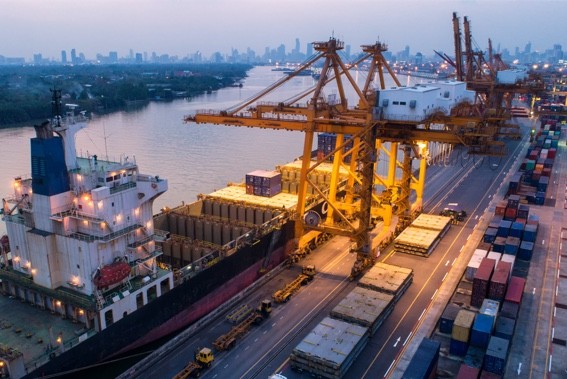
Electronic Bills of Lading on UK's legislative agenda
May 30th, 2022
The Law Commission has published draft legislation which would allow for the recognition of trade documents such as bills of lading and bills of exchange in electronic form under English law.
What are electronic bills of lading?
Put simply, these are versions of paper documents which can replicate the key functions of a traditional bill of lading, as a receipt, a representation of the contract of carriage, and document of title.
It is the bill of lading’s function as a document of title which is most difficult to replicate in electronic form. In many jurisdictions, the existing legal framework governing paper trade documents is premised on the idea that they can be physically held or “possessed”. The current law in England and Wales does not recognise the possibility of possessing electronic documents; possession is associated only with tangible assets.
What are the benefits of electronic documents?
In 2017, the UN Commission adopted the UNCITRAL Model Law on Electronic Transferable Records (the MLETR). At the date of writing, the MLETR has been adopted by Bahrain, Belize, Kiribati, Papua New Guinea, Paraguay, Singapore, and the Abu Dhabi Global Market.
It has been recognised that a move away from the use of paper documents and towards software solutions potentially has significant benefits to the shipping industry as a whole. At the G7 Digital and Technology Ministers’ meeting on 28 April 2021, the delegates concluded that paper-based transactions are “a source of cost, delay, inefficiency, fraud, error and environmental impact.”
Proposed Legislation
To solve this problem, the Law Commission has prepared a draft Electronic Trade Documents Bill, in consultation which is intended to enable electronic documents to be used in the same way as paper ones.
The Law Commission’s proposed solution (which was developed in consultation with international trade participants, tech companies, lawyers, and academics) is that a trade document in electronic form should be capable of being possessed provided that certain criteria are met. These criteria are designed to replicate the salient features of paper trade documents and include the following:
- The electronic document should be susceptible to exclusive control. In order to prevent double spending, only one person (or persons acting jointly) must be able to exercise control of the document in electronic form at any one time.
- The electronic document should be fully divested on transfer. The transferor should no longer be able to exercise control of the document when it is transferred.
- A reliable system should be used to ensure that the criteria are satisfied. The underlying system whereby the document meets the criteria must be reliable. We further recommend that the Bill should contain a list of factors which may be taken into account when assessing whether a system is reliable.
What Next?
The Law Commission’s report and suggested legislation has been put before Parliament. It will be for Government to decide whether to implement the recommendations. The Government has however already indicated that it intends to introduce relevant legislation when parliamentary time allows.
Further information, including a copy of the Law Commission’s report and suggested legislation, can be found at: Electronic trade documents | Law Commission
Are you on board?
Get in touch